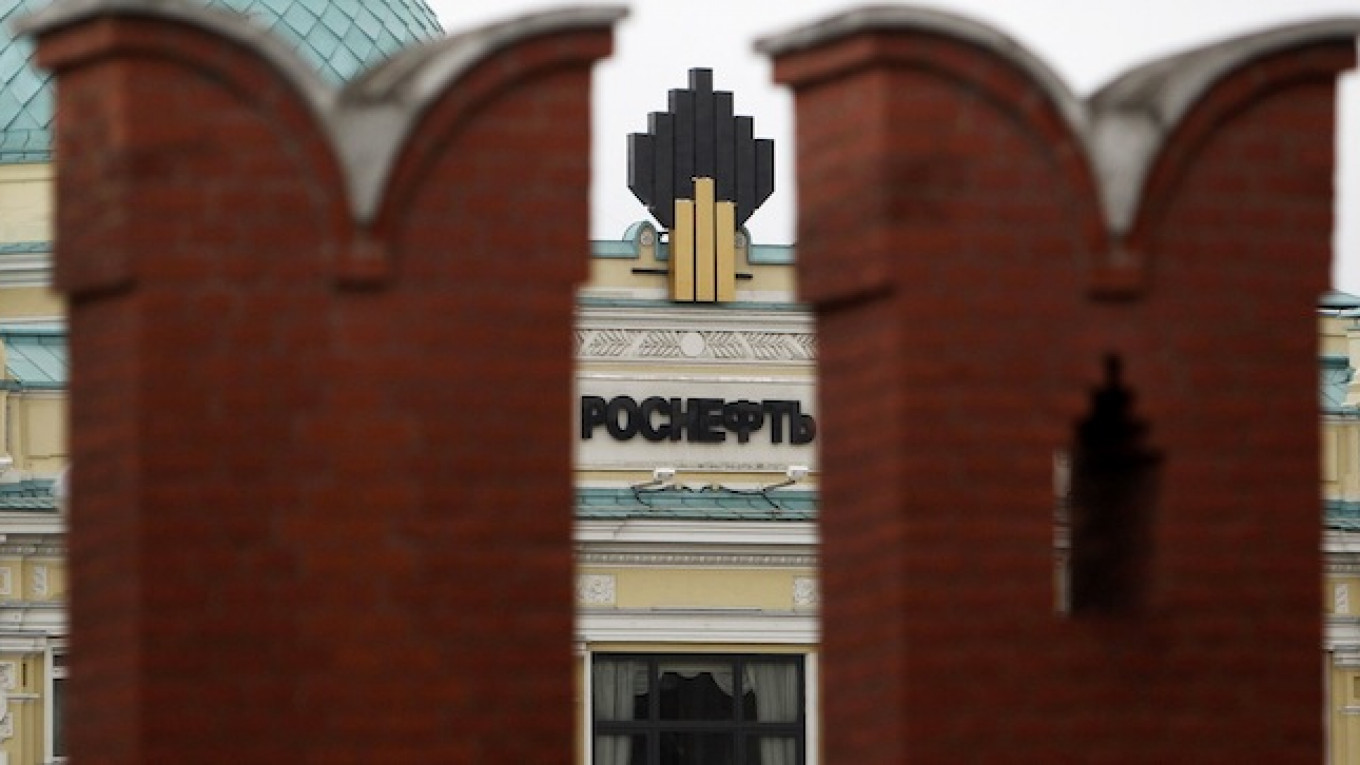Russia's Finance Ministry has rejected an application by oil giant Rosneft for a multibillion-dollar cash injection from one of the country's reserve funds, the Vedomosti newspaper reported Wednesday citing a ministry document.
Rosneft, the world's biggest publicly listed oil firm by production volume, is struggling to finance its debts and investment programs after U.S. and European Union sanctions curbed the state-controlled company's access to international capital markets.
The Economic Development Ministry had approved part of a Rosneft application for 1.3 trillion rubles ($25 billion) to fund energy projects from Russia's National Welfare Fund, a $75 billion oil revenue-funded piggy bank. But the Finance Ministry, which must also approve an aid package, has rejected the request, Vedomosti reported, citing a copy of a letter from Deputy Finance Minister Andrei Ivanov.
The letter, dated May 20, said Rosneft's application did not provide adequate basis for approving funding, Vedomosti said. Russia's economic crisis has sparked fierce competition among mainly state companies for access to cash from the welfare fund.
The paper cited four unnamed federal officials as saying that the Finance Ministry wanted to bury Rosneft's chances of receiving bailout cash, believing that the oil sector was hit less hard by the economic crisis than other industries.
Once source told the paper: “Oilmen are for them [the Finance Ministry] fat cats.”
Rosneft earlier warned the government that failure to grant the company cash from the welfare fund would cause a huge shortfall in tax revenue over the coming years due to delays in new oil projects coming on line. One official at the time told Vedomosti the warning “looks like blackmail.”
Taxes from the oil and gas industries account for around half of Russia's budget revenues.
A Message from The Moscow Times:
Dear readers,
We are facing unprecedented challenges. Russia's Prosecutor General's Office has designated The Moscow Times as an "undesirable" organization, criminalizing our work and putting our staff at risk of prosecution. This follows our earlier unjust labeling as a "foreign agent."
These actions are direct attempts to silence independent journalism in Russia. The authorities claim our work "discredits the decisions of the Russian leadership." We see things differently: we strive to provide accurate, unbiased reporting on Russia.
We, the journalists of The Moscow Times, refuse to be silenced. But to continue our work, we need your help.
Your support, no matter how small, makes a world of difference. If you can, please support us monthly starting from just $2. It's quick to set up, and every contribution makes a significant impact.
By supporting The Moscow Times, you're defending open, independent journalism in the face of repression. Thank you for standing with us.
Remind me later.






